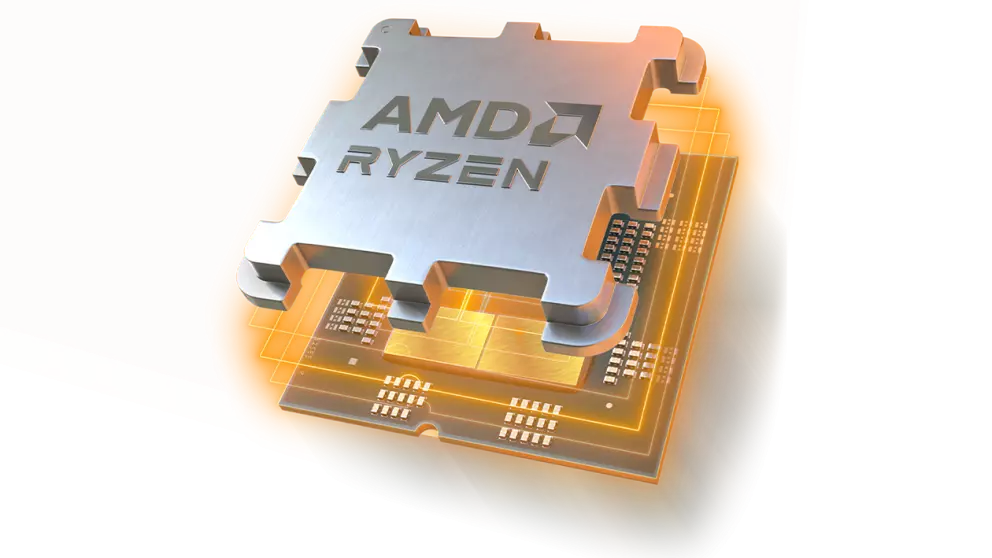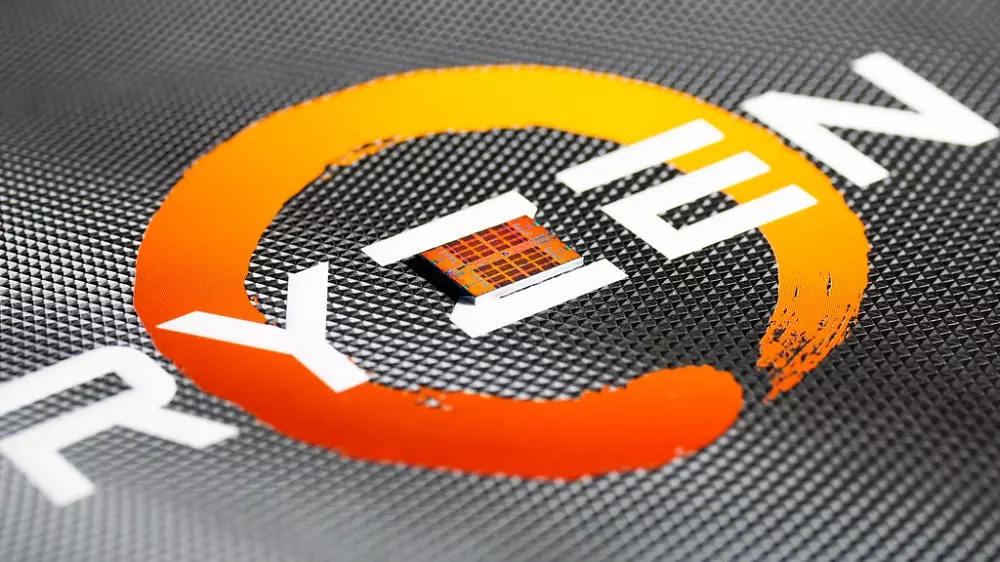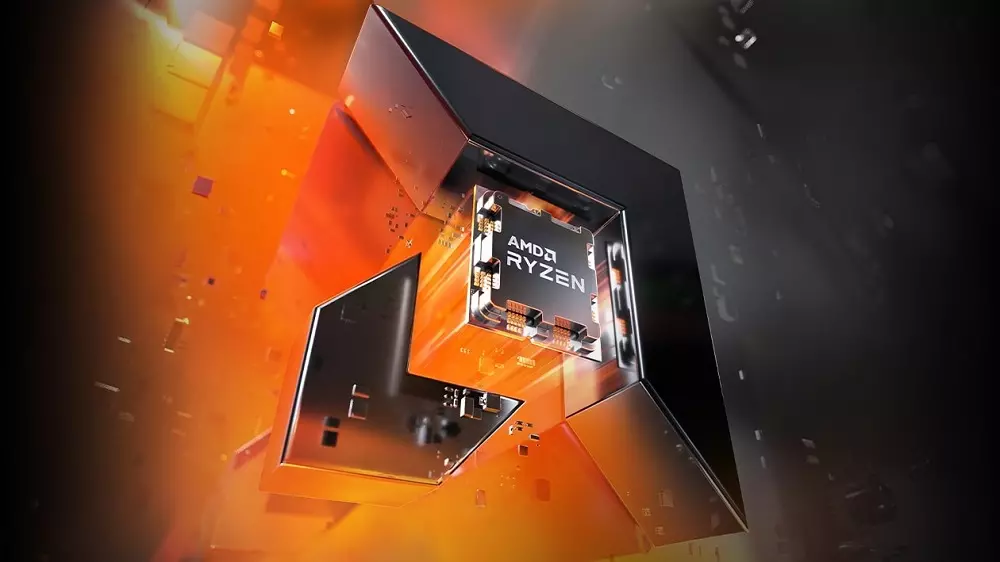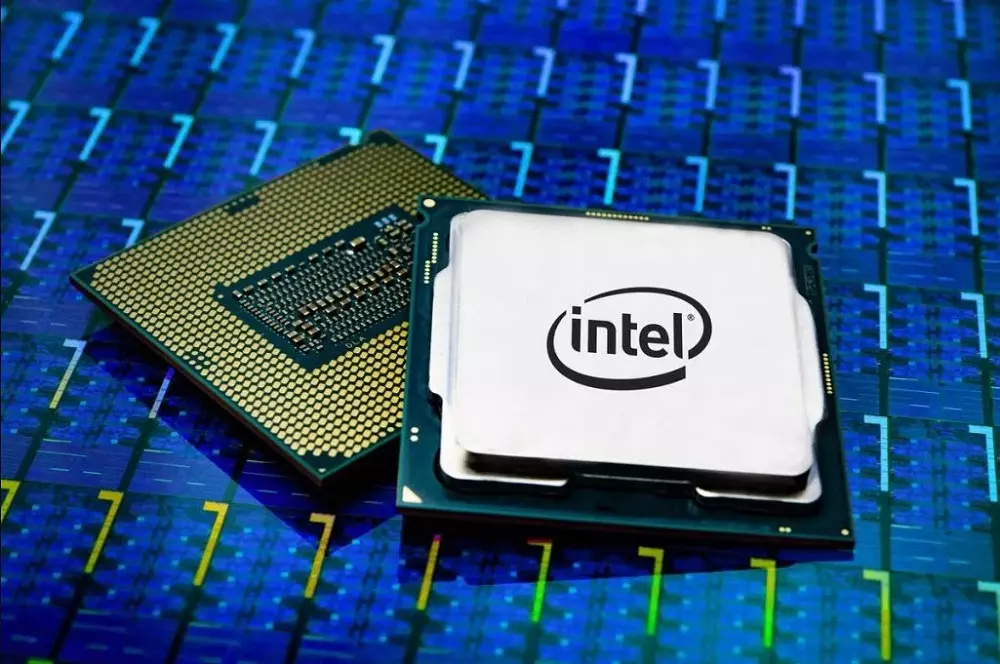AMD’s Zen 5 architecture is the next-generation design just over the horizon, and it's drawing tantalisingly nearer with every passing day. AMD hasn’t given us the full details about what its next-gen chips will be capable of, but if Zen 4 is anything to go by, they could be incredibly impressive. Indeed, these will be the second generation of CPUs on AMD’s AM5 platform, giving them a more mature base to build from, and an existing user base who can potentially upgrade with a simple CPU swap – no motherboard upgrade required.
But upgradeability and last-gen inspirations aren’t much to get excited about on their own. What is though, are some of the rumours and leaks about what Zen 5 might be capable of. We may be looking at a big increase in core counts, some inspiration taken from Intel’s multi-core architecture designs, and a potentially big leap in instructions per clock. That could make Zen 5 cores the fastest seen in any CPU so far.
With that tease out of the way, let’s take a closer look at AMD’s Zen 5, and what we can expect from future Ryzen generations that support it.

Pricing and release
AMD hasn’t given us a firm release date or pricing data for its next-generation Zen 5 CPUs, but it has repeatedly confirmed in the face of speculation that it will launch in the “second half of the year.”
AMD has used a few different release windows for past generations of Ryzen processors, sometimes launching in the Spring, sometimes late Summer. But more recently, with the Ryzen 5000 and 7000 generations, AMD has utilized an Autumn release date followed by a mid-generation refresh the following Spring.
Considering the strong feedback and success of these generations, AMD’s own statements, and its continued plans to introduce 3D V-Cache versions of Zen 5 chips at some point, we may well see a repeat of recent generations with Zen 5. If you had to force us to predict what month, we’ll see them debut in October, with a potential teasing unveil at Computex in June.
There were some rumours in January 2024 that AMD would bring the launch forward to May-June time, looking to get a few months lead on Intel’s next-generation Arrow Lake processors, which are themselves slated to debut in the Autumn. That seems unlikely though based on historical precedent and AMD’s own statements, but a girl can dream.
As for pricing, unless there’s some dramatic shift in fabrication costs, or a global constraint on the supply of silicon as we saw during the pandemic, we will likely see comparable prices to the Ryzen 7000 generation. That would put the first Ryzen 5 CPUs at around £330, the higher-end Ryzen 7s at around £430, and the top-tier Ryzen 9s at £500-600. AMD will likely start with the X versions of its processors, introducing non-X versions later at a lower price, potentially alongside X3D versions.

What’s new?
AMD has yet to announce the specifications of Zen 5 CPUs, so we’ll need to wait for that official line before we can say for sure what we can expect from the next-generation Ryzen processors. That said, we have had a lot of leaks, a lot of rumours, and a lot of well-educated speculation about what Zen 5 could bring to the table, and if even a portion of it proves true, Zen 5 could be very exciting indeed.
Core Counts
The core counts of a CPU generation are one of its most defining characteristics, and most rumours and leaks suggest AMD will maintain the same core configuration with Zen 5 as it did with Zen 4. That is: four cores for the very low-end Ryzen 3 models, six cores for the Ryzen 5s, eight cores for the Ryzen 7s, and 12 and 16 cores for the Ryzen 9s. However, there has also been a rumour that AMD will introduce a new efficiency core design, as Intel has with its 12th, 13th, and 14th generation processors.
If true, AMD may offer up to 16 cores on a single of the core complex chiplets (CCX) within the CPU, thereby opening up the potential for unique configurations like 8+8, 8+16, and even 16+16 if some leaks are to be believed.
Clock Speeds
As for the architecture itself, single-core clock speeds are expected to remain comparable to the Zen 4 generation with only modest improvements, if they’re there at all. While that might seem disappointing when AMD was getting so close to hitting the 6 GHz milestone, there are diminishing returns with boosting clock speed. An additional 2-300 MHz is only around a five percent performance improvement and brings with it additional concerns over power and thermals.
However, where single-core boost clocks might not be any higher, all-core clocks are said to have been improved significantly, which would make for a notable increase in multi-threaded performance across the board.
That would go very well with the rest of the way Zen 5 appears to have been designed, with a real focus on improving individual core performance at the architectural level. It’s a ground-up new architectural design, unlike Zen 4 which was a redesign and improvement of Zen 3. That gives AMD a lot more wiggle room in how it puts the chip together, leading to some rumours that AMD has increased the arithmetic logic unit (ALU) count from four to six, which could significantly increase the effectiveness of simultaneous multi-threading for a big boost in multi-threaded performance.
Cache Increases
There are rumours that Zen 5 could improve instructions per clock (IPC) of each core by as much as 30 percent. That kind of improvement hasn't been seen since the first Ryzen generation, so would be a significant leap in capabilities if true.
Some of that performance enhancement may come from added cache. There have been rumours that AMD will be increasing the quantity of L1 and L2 cache per core. It wouldn’t be by huge quantities, as low-level cache is still very expensive to produce and add to chips, but any increase there should go hand in hand with the overall performance boost of this generation. They’ll also help feed the large L3 cache expected to come in the Zen 5 refresh with X3D models.

Overall Design
Whatever changes Zen 5 brings with it, however, the Zen 4 core layout and design will likely remain the same. That is, a single or pair of chiplets holding the main CPU cores, alongside an I/O die that contains the onboard graphics – likely based on RDNA 3.5 as we've seen with the Ryzen 8000 APUs – alongside connectivity silicon for native Wi-Fi and USB4 support.
Like the Zen 4 generation, the I/O die is likely to be based on an older process technology – perhaps the 7nm used in Zen 4. In comparison, the new Zen 5 cores are slated to use TSMC's 3nm technology, which should bring some important performance and efficiency improvements to the table.
As for new features, we can expect a next-generation of AI accelerators, which should become more important as we see new generations of desktops and laptops this year with generative AI enhancements. We should also see full FP16 AVX512 instruction support, and improved support for USB4 and even Thunderbolt.
The one aspect of Zen 5 that we can all appreciate, is that it will be based on the AM5 socket. That should make most Ryzen 9000 CPUs compatible with existing Zen 4 motherboards on 600 chipsets, making an upgrade as simple as plugging in the new CPU. Cooler compatibility should be all but guaranteed, too, unless the next-gen CPUs make a sudden leap in thermal demands, which seems unlikely.
Efficiency is expected to be a major component of Zen 5. AMD has really differentiated itself from Intel in recent generations with much lower thermal and power requirements compared to the competition. Especially with its high-gaming performance on the X3D models. Look for AMD to maintain its TDPs next generation, with Eco mode continuing to offer a low-power mode alternative for those who want ultra efficiency.
How will it compete with Intel?
This is one question we are dying to answer, but unfortunately, it will remain unanswered until we get the real AMD chips in our hands and plugged into a motherboard to see how they perform. There are a lot of unknowns when it comes to real-world performance, and though AMD's current-generation processors hold the top spot in gaming and compete effectively in productivity, there are some gaps to close. So AMD isn't starting from even footing everywhere.
That said, if the rumours and leaks are to be believed, and AMD does indeed plan to launch X3D variants of its next-gen designs, we are very excited to see how the head-to-head plays out later in 2024.
It all very much depends on when Zen 5 launches, too. If it does launch in the Autumn of this year, AMD will be facing off against not only the top Intel 14th generation Raptor Lake refresh processors, but a whole new generation of Arrow Lake processors, too.
If AMD does split its processor architectures into performance and efficiency cores and increases the core counts similarly to Intel with its 12th, 13th, and 14th generations, we should see a huge increase in the multi-threaded performance of Zen 5 CPUs. Especially if the IPC gains are anything to go by. That would give AMD the raw thread power it needs to better compete in professional tasks like video transcoding and encryption.
If AMD instead continues to focus on its main Zen 5 architecture for now and maintain its 16-core maximum for top chips, we may see a repeat of this generation when it comes to the AMD versus Intel head-to-head. With AMD offering competitive, but more efficient performance just about everywhere, and its X3D CPUs storming in and stealing the gaming crown part way through the generation.
This all depends on how Arrow Lake shakes out too. Rumours there suggest Intel’s next generation release might be another modest improvement – though certainly more than we saw with the 14th generation. IPC gains are said to be around five percent in single-threaded tasks, and around 15% in multi-threaded scenarios.
There will also be a new process node, as well as new architectures for both the performance and efficiency cores. Clock speeds may actually be slightly lower with this generation, but if that helps bring down the high power draw of Intel’s flagship processors, that would hardly be a bad thing.
That doesn’t necessarily suggest Intel will blow the doors off in bringing the fight to AMD, but it hasn’t had a generation yet where it couldn’t at least compete, so we’ll have to wait and see how it turns out.

Conclusion – 2024 is shaping up to be an exciting year
With a relatively quiet 2023, there were a lot of hopes pinned on 2024 being an exciting year for new processor technology, and so far it looks set to match or exceed those expectations. We don’t yet have firm details of how the AMD vs. Intel dynamic will shake out this year, but both companies have some very exciting processor technology that we’re only mere months away from seeing – whether AMD drops it in the middle of the Summer, or later in the year.
Either way, though, if you’re in need of an upgrade, you don’t need to wait to get an amazing PC for work or play. Get in touch with Chillblast and one of our expert system builders will be able to analyze your needs and help find (or build) the best PC for you. While Zen 5 might be exciting, Zen 4 is here now and is ready to deliver incredible performance and efficiency, no matter what you throw at it.










